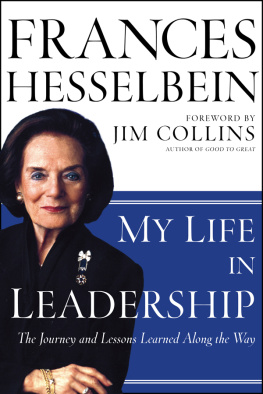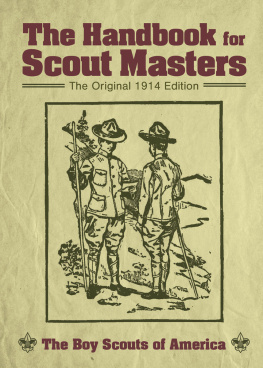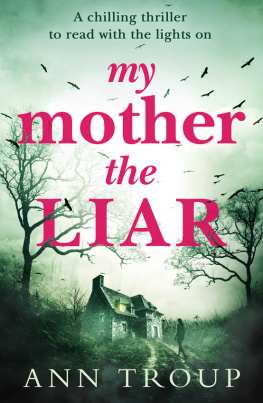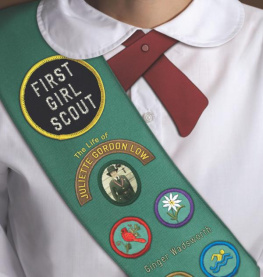All rights reserved.
Published in the United States by Ballantine Books, an imprint of Random House, a division of Penguin Random House LLC, New York.
BALLANTINE and the HOUSE colophon are registered trademarks of Penguin Random House LLC.
Photo credits: pages courtesy of the author.
Names: Stewart, Nikita, author.
Title: Troop 6000: the Girl Scout troop that began in a shelter and inspired the world / Nikita Stewart.
Description: First edition. | New York: Ballantine Books, 2020.
Identifiers: LCCN 2019038599 (print) | LCCN 2019038600 (ebook) | ISBN 9781984820754 (hardcover) | ISBN 9781984820778 (ebook)
Subjects: LCSH: Girl Scouts of Greater New York. Troop 6000. | Girl ScoutsNew York (State)New York. | Homeless girlsNew York (State)New York. | HomelessnessNew York (State)New York.
Classification: LCC HS3361.N49 S74 2020 (print) | LCC HS3361.N49 (ebook) | DDC 369.46309747/1dc23
HAILEY SMOOTHED DOWN her wavy hair and tried not to be nervous. She was thirteen and it was a big deal, being on television. If you lived in New York and had cable, the citys twenty-four-hour news channel, NY1, was the first thing you saw when you turned on the TV. Hailey took another deep breath and thought about what she might say to the interviewer. The butterflies in her stomach danced the way they did every year on the first day of school.
It was a Wednesday in July 2016, and the humidity was so high that her hair, which shed combed into a half-up, half-down style, had turned into a sort of billowing Afro in the back. It was puffier than she had planned. Hailey told herself that was okay because no one could see the back, right? She sat perched on the edge of the brown leather sofa in the lobby of Pams Place, a homeless shelter for single women in Long Island City, Queens, tugging at her khaki Girl Scouts vest to straighten it. Then the reporter, a friendly brown-haired woman whose calm voice helped put Hailey at ease, started asking her questions. The camera zoomed in and out on Haileys face. Although her thirteen-year-old body had grown into an adult one seemingly overnighta fact that she hated because now men and boys stared at her and sometimes made rude remarksher baby face was unchanged, and when she smiled, as she did now, it lit up, looking almost cherubic.
Months earlier, in November, her troop, the Girl Scouts of Sunnyside & Woodside, had served a Thanksgiving lunch to the women who lived at Pams Place. Now Hailey, her sisters Karina and Christina, and the rest of their troopwho were always doing community service, volunteering to clean up a park or to bring cheer to children with chronic illnesseshad returned to Pams Place as part of Operation Cookie, a service project that allowed customers to buy the coveted cookies and donate to people whose spirits needed lifting, like veterans, military personnel, senior citizens, and people experiencing homelessness. The Scouts then delivered the cookies. A couple of reporters, including the one who was sitting across from her now, showed up to cover the event. The troop had picked Hailey to represent them on camera that day. Her mother, Giselle, was a leader of the troop and worked as a community development specialist for the Girl Scouts of Greater New York, so even though Hailey had been a Girl Scout for only two and a half years, she knew a lot about Girl Scouting and the history of the organization. And although she was a little shy, which may not have made her an obvious choice as a public representative, she was thoughtful and affable.
People do so much for us and the least we can do is do something for them, Hailey told the reporter. She blinked, paused, and then smiled as she tried to think of what else to say. The women in the shelter have experienced many hardships and are really struggling. To see us come in and do all these things for them really makes their day.
After the interview, NY1 collected footage of Hailey standing with her sisters in their Girl Scout vests. Within the Scouts, girls were organized based on grades in school. Haileys khaki vest indicated that she was an older Scout; she was going into the eighth grade and was a Cadette. Karina, who was approaching her eleventh birthday, would be a fifth grader, so she wore the green vest of a Junior Girl Scout. Christinas vest was brown; at seven years old she would start second grade in the fall, which made her a Brownie. All three of them tried not to look at the camera as they handed out Thin Mints and Samoas and Do-si-dos, but they couldnt help it. It was television, after all, and they were going to be on it.
Two days later, on Friday, the sisters and their younger siblings, Gillesy and Judas, who were two and three, gathered in their grandmothers living room to watch the segment. Giving back is a way of life for thirteen-year-old Hailey Vicente, the reporter narrated as Haileys face appeared on the flat-screen TV that hung on the wall of the cramped apartment where her mother, Giselle, had grown up. The apartment never got a lot of natural light but the dimness made it cozy and familiar, and on that day, with everyone piled into the living room, squeezing onto the worn faux leather couch, it felt especially homey. They were all thereHaileys mother, sisters, and brother, along with Evelyn and Manny, Giselles mother and stepfather, and Mateo and Miranda, Giselles half brother and half sisterand all were proud of Hailey for speaking so eloquently about helping people who did not have homes of their own. The segment was called Queens People of the Week, and for the one minute and forty-five seconds that it played, Hailey and her mother and siblings forgot about their secret. Few people outside the family knew about it, certainly not the girls classmates, not even the Scouts who had helped them give out cookies at Pams Place.
And if the nice reporter from NY1 had for some inexplicable reason asked Hailey about it, Hailey would have lied to her.
The secret was that Hailey and her family were homeless, too.
The eviction had happened just days before the television interview.
Even though the description in court records read forcible entry/detainer, nobody had beaten down any doors or strong-armed their way in. Giselle had known this moment was coming for at least two months, and shed opened her apartment door without protest to allow her landlord and the marshal entry. The day before, shed explained to her five children what was about to take place.


















